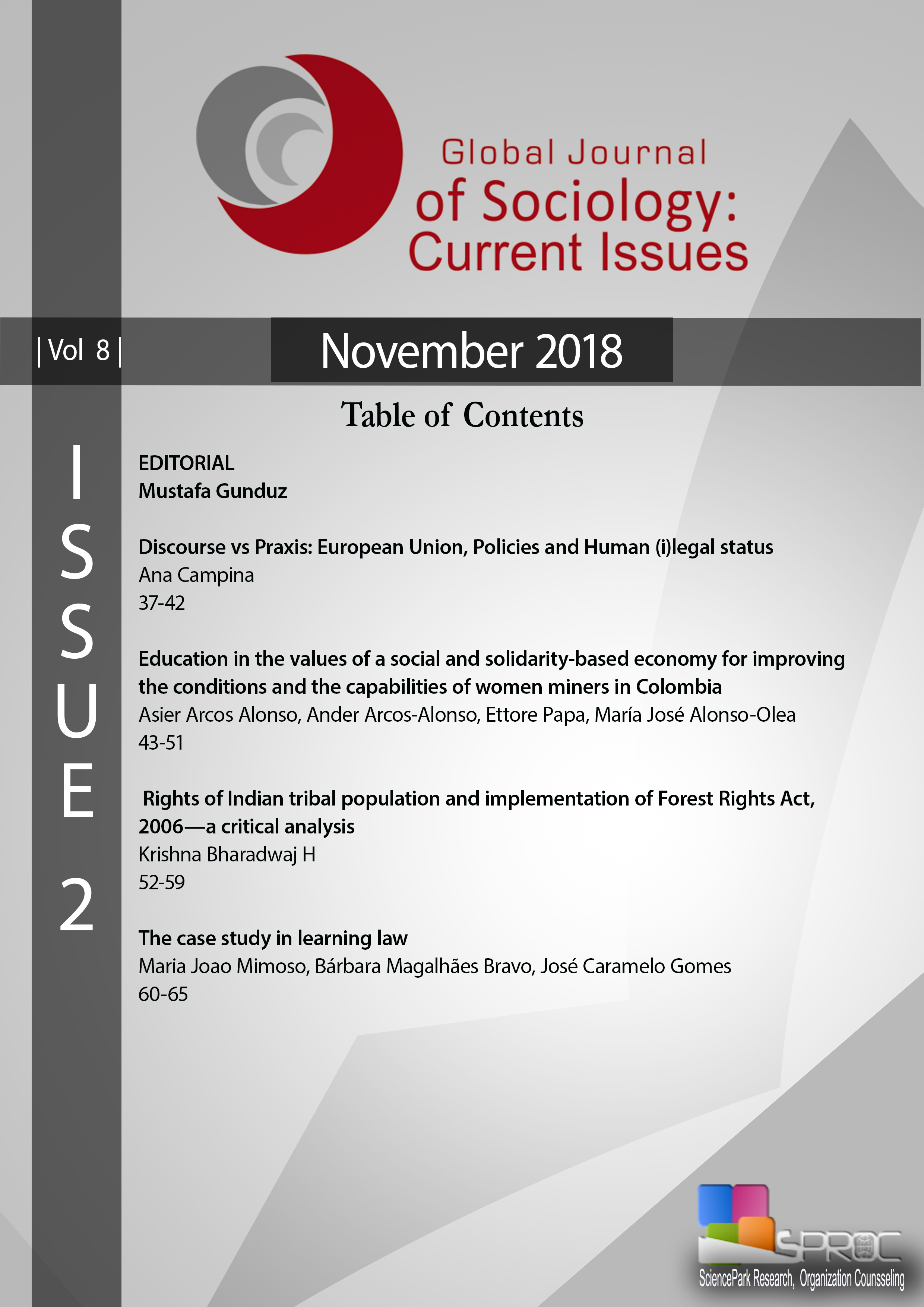The case study in learning law
Main Article Content
Abstract
The present study is a reflection on the method of case study in learning law. To achieve this purpose we will discuss the traditional method and its limitations to the challenges of law in the era of globalization. We will emphasize the urgent need to implement the case study method in Portuguese law schools, as an instrument that enhances the active participation of the student, protagonist in the process of learning and knowledge acquisition. This study is justified today, especially the challenges triggered by the Bologna process, including the implication in the teaching, learning and assessment. The teacher is assumed as a supervisor of the learning process, calling for the autonomy of the student. It is intended that students develop critical thinking and be able to reflect on their own learning process. Therefore, the need to revise the traditional methodology here rooted in the teaching of law. A review of the literature will be carried out, which will seek to contextualize, at present, the reflexivity with the pedagogical objective. Use shall be a deductive reasoning, based on the general reality of teaching to learning the law, underlining the importance of the case study method for the development of didactic and pedagogical dimension. At the end of this tour we will be able to discern the extent of the right learning, seeking a methodological model capable of mobilizing students for their new role, participatory and critical. The current model of education should focus on learning and the use of teaching methods that are not limited to the learning, particularly the most active. The student should be able to participate and discuss the acquired knowledge in concrete contexts of social life.
Keywords: education; teaching; case; method.
Downloads
Article Details

This work is licensed under a Creative Commons Attribution 4.0 International License.
Authors who publish with this journal agree to the following terms:- Authors retain copyright and grant the journal right of first publication with the work simultaneously licensed under a Creative Commons Attribution License that allows others to share the work with an acknowledgement of the work's authorship and initial publication in this journal.
- Authors are able to enter into separate, additional contractual arrangements for the non-exclusive distribution of the journal's published version of the work (e.g., post it to an institutional repository or publish it in a book), with an acknowledgement of its initial publication in this journal.
- Authors are permitted and encouraged to post their work online (e.g., in institutional repositories or on their website) prior to and during the submission process, as it can lead to productive exchanges, as well as earlier and greater citation of published work (See The Effect of Open Access).
